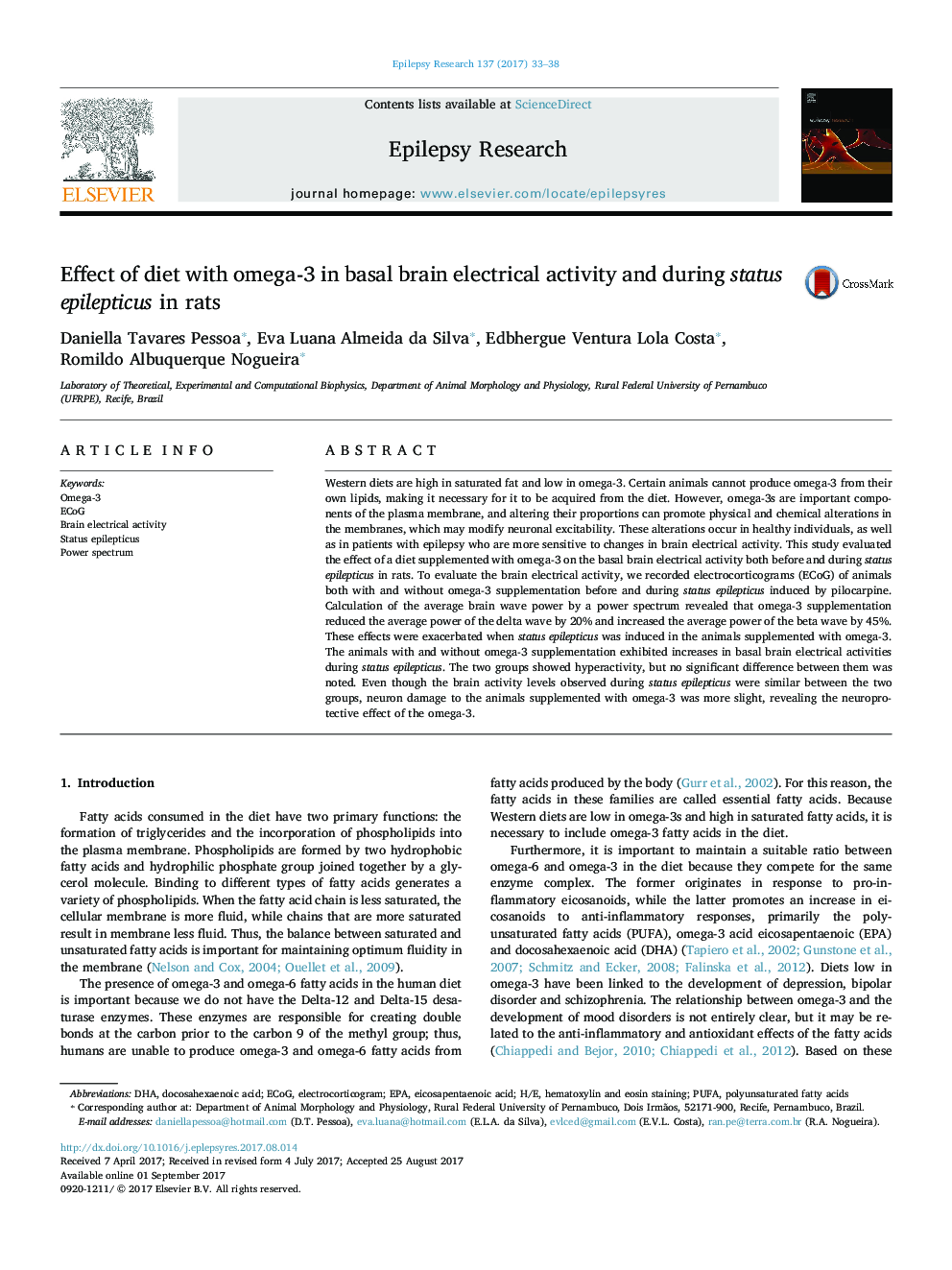| کد مقاله | کد نشریه | سال انتشار | مقاله انگلیسی | نسخه تمام متن |
|---|---|---|---|---|
| 5628647 | 1579886 | 2017 | 6 صفحه PDF | دانلود رایگان |
- ECoG of rats supplemented with omega-3 were evaluated by power spectrum.
- Power spectrum evaluated the ECoG of rats submitted to status epilepticus.
- Histological analysis identified neuronal death of rats in status epilepticus..
- The omega-3 promoted the neuroprotective effect for rats in status epilepticus.
Western diets are high in saturated fat and low in omega-3. Certain animals cannot produce omega-3 from their own lipids, making it necessary for it to be acquired from the diet. However, omega-3s are important components of the plasma membrane, and altering their proportions can promote physical and chemical alterations in the membranes, which may modify neuronal excitability. These alterations occur in healthy individuals, as well as in patients with epilepsy who are more sensitive to changes in brain electrical activity. This study evaluated the effect of a diet supplemented with omega-3 on the basal brain electrical activity both before and during status epilepticus in rats. To evaluate the brain electrical activity, we recorded electrocorticograms (ECoG) of animals both with and without omega-3 supplementation before and during status epilepticus induced by pilocarpine. Calculation of the average brain wave power by a power spectrum revealed that omega-3 supplementation reduced the average power of the delta wave by 20% and increased the average power of the beta wave by 45%. These effects were exacerbated when status epilepticus was induced in the animals supplemented with omega-3. The animals with and without omega-3 supplementation exhibited increases in basal brain electrical activities during status epilepticus. The two groups showed hyperactivity, but no significant difference between them was noted. Even though the brain activity levels observed during status epilepticus were similar between the two groups, neuron damage to the animals supplemented with omega-3 was more slight, revealing the neuroprotective effect of the omega-3.
Journal: Epilepsy Research - Volume 137, November 2017, Pages 33-38
